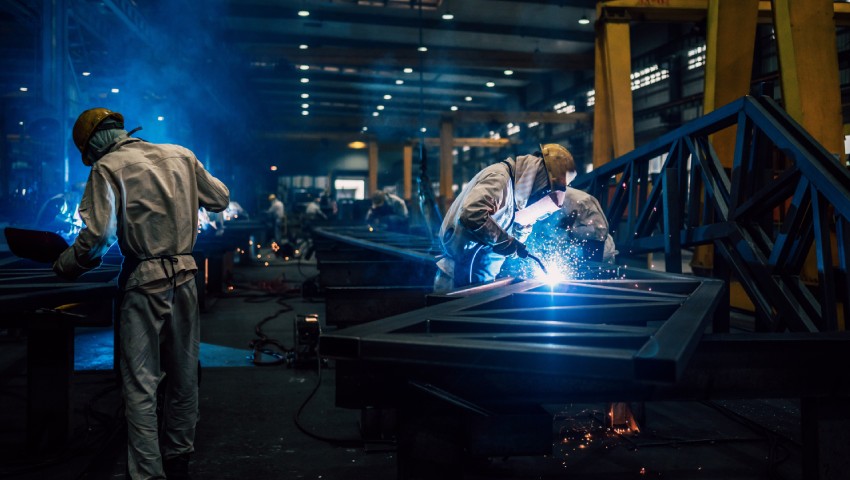China’s overwhelming control over the extraction and supply of rare-earth elements will threaten the production of defence equipment in the event of a large-scale conflict, a recent analysis has shown.
While Australia has sought to bolster its defence manufacturing capability over recent years, a recent analysis has found that Western defence industries would be left without fundamental metal alloys in the event of global turmoil due to China’s global control of the rare-earth mineral industry.
Writing for the US Army War College’s Quarterly Parameters Journal, Gustavo Ferreira and Jamie Critelli found that Western powers rely on this Chinese dominated industry for the production of a range of critical defence equipment such as “jet fighter engines, Aegis-equipped destroyers and cruisers, missile guidance systems, anti-missile defenses, satellites, ammunitions, communication systems”.
The pair points toward the recent pandemic to illustrate how the West was even unable to reverse their over-reliance on Chinese PPE, and the difficulties in rebuilding a manufacturing industry from the ground up.
The true scale of US reliance on Chinese rare-earth elements resources is eye opening.
“A 2010 Government Accountability Office report presented sobering statistics about China’s dominance at all levels of the REE [rare-earth elements] supply chain—the country produced about 95 percent of the raw materials, 97 percent of oxides, and about 90 percent of the metal alloys,” the pair explains.
“From a military perspective, the report stated the US dependency on a potential adversary for critical resources could shape the outcome of a military confrontation.”
As at 2019, the pair cite the US Geological Survey to illustrate that while China alone has 37 per cent of the world’s rare-earth element reserves – Australia and the United States only have 3 per cent and 1 per cent, respectively.
The over-reliance on Chinese rare-earth elements will cause both commercial and military disruptions in the event of escalatory activity.
The pair outline that each F-35 requires 417 kilograms of rare-earth minerals – illustrating the fundamental reliance of one of the West’s pre-eminent war machines on the Chinese supply chain.
Meanwhile, the move to renewable energy will make the West’s energy grid further reliant on China’s control of the rare-earth supply chain.
“As major economies transition to lower-carbon and renewable energies, analysts estimate the demand for rare-earth elements will continue to grow rapidly. Clean-energy technologies, such as hybrid electric vehicles or generators for wind turbines, could consume up to 40 percent of all REE production by 2040,” the pair outlines.
Worryingly, Chinese state media has even flagged their acute awareness of this supply chain issue for the West.
“A few days later, an editorial by Xinhua (the government’s official state-run press agency) warned that by “waging a trade war against China, the United States risks losing the supply of materials that are vital to sustaining its technological strength,” the pair explains.
According to Ferreira and Critelli, the US’ move away from rare-earth elements was precipitated by underinvestment from the government, a lack of support from the “academic community” and the long-term structural decline in the workforce.
However, there are some green shoots on the horizon.
The Biden administration on the 31st of March 2022 used The Defense Production Act to encourage US businesses to build and enhance the United States’ rare-earth minerals projects to support American industry – but has faced speed bumps from environmental groups.
It would be hoped that the expansion of the US’ rare-earth element supply chain would also benefit the defence industry, enabling them to access alternative mineral sources.
Former federal resources minister and Senator for Queensland Matthew Canavan has called for Australia to establish more robust rare-earth supply chains.
“The government has been focused for some years about the need to establish more resilient supply chains for rare earths. I signed an agreement, as resources minister, with the US government on the supply of critical minerals (including rare earths) in late 2019. That agreement has led to the construction of a new rare earths processing facility in Texas by Australian company Lynas,” Senator Canavan told Defence Connect.
“Lynas is the only major producer of rare earths outside China in the world. The key problem with rare earths markets is that Chinese companies have such control that they can distort the market at any time to keep out new entrants. This makes raising commercial finance for Western rare earths suppliers too costly or simply unavailable.
“The response must be greater government investment in rare earths in Western countries. That is why we have established the $2 billion Critical Minerals Facility to help make such investments.”
Get involved with the discussion and let us know your thoughts on Australia’s future role and position in the Indo-Pacific region and what you would like to see from Australia's political leaders in terms of partisan and bipartisan agenda setting in the comments section below, or get in touch with








